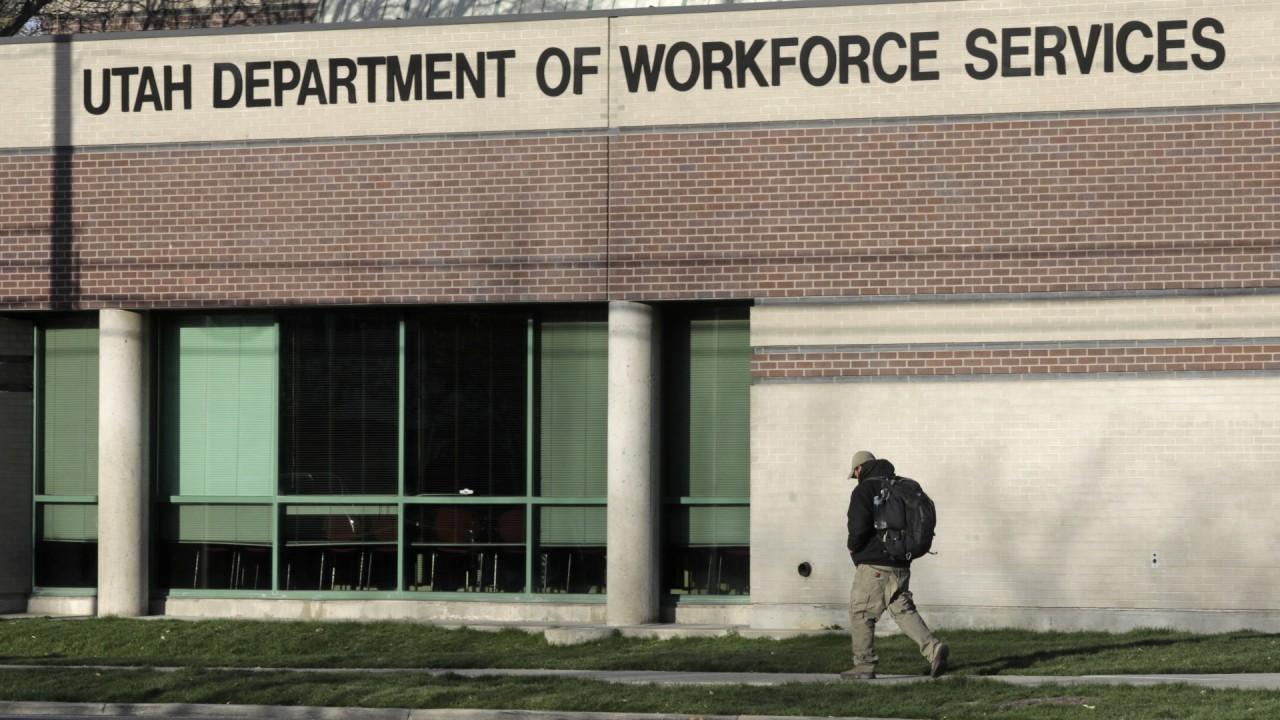Unemployment claims jumped by 5.25M last week as coronavirus job carnage continues
The report provides the most up-to-date evidence on the labor market and the health of the economy
Get all the latest news on coronavirus and more delivered daily to your inbox. Sign up here.
The number of Americans seeking unemployment benefits jumped by 5.25 million last week, as massive job losses caused by the coronavirus pandemic continued to mount.
That brings total claims over the four weeks ended April 11 to nearly 22 million workers, erasing the entirety of labor market gains since the 2008 financial crisis, a stunning sign of the colossal economic damage inflicted by the virus outbreak. Before the pandemic, the largest number of Americans to seek jobless aid in a four-week stretch was 2.7 million in the fall of 1982.
With a labor force that totals about 162 million people, that brings the unemployment rate close to 13 percent.
That exceeds the 10 percent peak during the worst of the Great Recession more than a decade ago and tops the previous post-World War II high of 10.8 percent in 1982, bringing the U.S. closer to Depression-era levels of unemployment. A growing number of economists have warned the so-called "Great Lockdown" will push the global economy into the worst recession since the Great Depression.
HERE'S HOW EXPANDED UNEMPLOYMENT BENEFITS WORK
Economists surveyed by Refinitiv expected the number of initial claims for state unemployment benefits to hit 5.1 million. Last week’s initially reported total of 6.606 million was revised up slightly by 9,000 to 6.615 million.
The report, which provides the most up-to-date evidence on the labor market and the health of the economy, likely reinforces economists' views that the U.S. has already entered a sharp recession, bringing to an end a historically long, 11-year economic expansion.
"The torrent of unemployment claims is the result of the ongoing shutdown of non-essential businesses, but the 22-million-job question looming over the labor market is whether these layoffs will be temporary or permanent," said Daniel Zhao, senior economist at Glassdoor.
The four-week moving average was more than 6 million, up 2.56 million from a week ago.
The biggest states all saw significant increases in unemployment last week: California employment dropped by 257,848, Michigan decreased by 169,234 and Pennsylvania fell by 39,283.
New York gained 51,498 new positions.
HOW TO FILE FOR UNEMPLOYMENT BENEFITS
Lawmakers are looking to provide relief to laid-off workers with a $2 trillion stimulus package, the largest relief bill in recent memory, that President Trump signed at the end of March.
In addition to giving adults who earn less than $99,000 annually up to $1,200 cash checks, the bill expanded unemployment benefits, broadening the pool of out-of-work Americans who can file claims to include the self-employed and independent contractors -- exacerbating the jump in initial claims for state unemployment benefits.
Unemployment could take years to return to pre-coronavirus levels, according to a Bloomberg survey of economists. The economists projected that unemployment will fall gradually after peaking in the second quarter of 2020, but will only drop to 8.1 percent in the final three months of the year. Even in 2020, unemployment is expected to remain at 5.4 percent, well above the historic lows consistently seen prior to the pandemic.




















